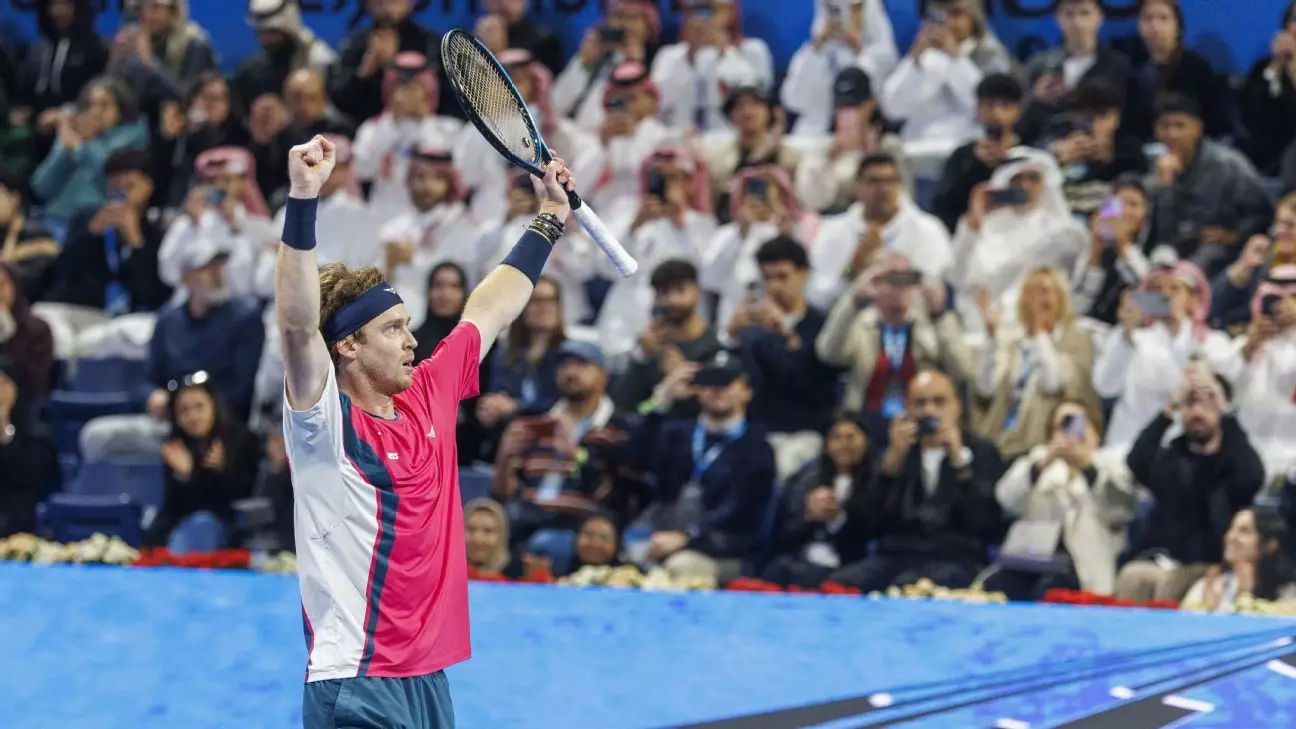Andrey Rublev, currently ranked as World No. 9, has embarked on a journey of self-discovery and emotional tranquility, largely facilitated by insightful dialogues with Marat Safin, a two-time Grand Slam champion. These conversations have proven transformative for Rublev, allowing him to navigate the often tumultuous waters of professional tennis without the debilitating weight of stress and anxiety. After years of grappling with his emotions on and off the court, the 27-year-old Russian is finally experiencing a sense of calm that has eluded him for so long.
Mental health is a topic increasingly discussed in the world of sports, and Rublev’s experiences lay bare the significant challenges faced by athletes. He openly admitted that he had spent years feeling lost, battling an internal struggle that overshadowed his once-promising career. The pressures of professional tennis can manifest in various detrimental ways, particularly for those who find themselves in a seemingly never-ending cycle of doubt and frustration. Rublev’s candidness about his mental health issues resonates with many in the athletic community who understand the mental fortitude needed to succeed.
A Turning Point: Conversations as a Catalyst for Change
In an enlightening revelation, Rublev disclosed that a pivotal conversation with Safin helped him break free from his emotional turmoil. The former World No. 1 understood personal strife, having faced his own public struggles with anger on the court, which had led to notorious incidents such as racket destruction. His ability to relate to Rublev’s plight provided the necessary encouragement for the younger player. “He made me understand myself,” Rublev noted, highlighting the profound impact of mentorship.
As he began to understand his emotions through this newly formed dialogue, Rublev initiated a personal reset. No longer trapped in doubt, he could engage with his craft differently. For professionals like Rublev, separating personal identity from sport can be challenging, and such guidance from someone like Safin can act as a living testament to overcoming adversity. It’s about equipping oneself with the tools necessary for mental resilience in a sport that often prioritizes physical prowess.
Emerging Stronger: A New Chapter in Dubai
Armed with a renewed outlook, Rublev tackled the challenges he faced last week at the Qatar Open, demonstrating an impressive performance that culminated in victory. However, his return to Dubai comes with the memory of an unfortunate incident from the previous year, when he was defaulted from a semifinal match due to an alleged outburst. Yet, Rublev’s acceptance of past mistakes signals a significant growth in his character. Instead of dwelling on negativity, he chose to move forward, demonstrating that resilience is built on learning from experiences.
Now, preparing for his upcoming match against French qualifier Quentin Halys, Rublev carries with him an understanding that success in tennis does not solely hinge on skills but also on psychological well-being. His current state of neutrality, free from the burdens of depression and anxiety, marks the beginning of a more balanced and fulfilling chapter in his career. As Rublev navigates the complexities of his journey, he stands as a reminder that true strength often lies beneath the surface—in understanding and accepting oneself. This emotional clarity, coupled with his competitive spirit, could very well define the next phase of his professional life.

